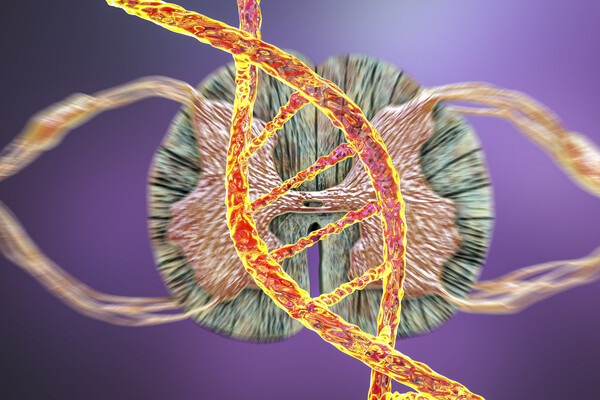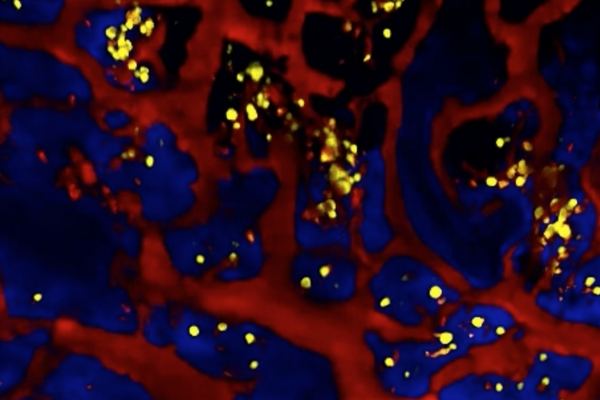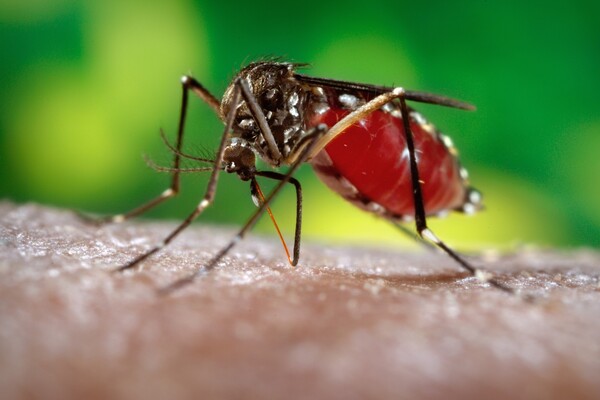5/10
Health Sciences
Tired Teens More Likely to Commit Crimes as Adults
Teenagers who self-report feeling drowsy mid-afternoon also tend to exhibit more anti-social behavior such as lying, cheating, stealing and fighting.
T Cells Support Long-lived Antibody-producing Cells, Penn-led Team Finds
If you’ve ever wondered how a vaccine given decades ago can still protect against infection, you have your plasma cells to thank. Plasma cells are long-lived B cells that reside in the bone marrow and churn out antibodies against previously encountered vaccines or pathogens.
New Penn Research Examines Gun Use, Injury and Fear in Domestic Violence
A weapon, whether a body part such as hands, fists and feet or an external instrument like a gun, often accompanies intimate-partner violence. Susan B.
Penn Medicine: Gene Search Reveals New Mutations, Drug Targets in Rare Adrenal Tumors
Casting one of the largest genomic nets to date for the rare tumors of the autonomic nervous system known as pheochromocytoma and paraganglioma (PCC/PGL) captured several new mutations driving the disease that could serve as potential drug targets, researchers from Penn Medicine and other institutions reported in
Penn Medicine: Orphan Disease Center Partners with Foundation to Study Gene Therapy Approaches to Treat Angelman Syndrome
Penn Medicine’s Orphan Disease Center (ODC) announces a new partnership with the Foundation for Angelman Syndrome Therapeutics or FAST to study gene therapy approaches to treat Angelman syndrome (AS).
CHOP/Penn/Boston Children’s Study: Low Blood Sugar No Benefit to Critically Ill Children
Critically ill infants and children do not gain extra benefit from lower blood-sugar levels, compared to higher levels within the usual care range, according to research from the Children’s Hospital of Philadelphia, the University of Pennsylvania
Plant-made Hemophilia Therapy Shows Promise, Penn Study Finds
People with hemophilia require regular infusions of clotting factor to prevent them from experiencing uncontrolled bleeding. But a significant fraction develop antibodies against the clotting factor, essentially experiencing an allergic reaction to the very treatment that can prolong their lives.
Anti-Inflammatory, Anti-Cell Death Agent a Potential Treatment for Vision Loss Associated with Multiple Sclerosis
A new therapeutic agent tested in a mouse model of multiple sclerosis (MS) produced anti-inflammatory activity and prevented loss of cells in the optic nerve, according to a new study by researchers in the Perelman School of Medicine at the University of Pennsylvania, with Pittsburgh-based Noveome Biotherapeutics.
Penn Genetics Researcher Receives Grant from Pharmaceutical Consortium to Study Diabetic Kidney Disease
Katalin Susztak, MD, PhD, an associate professor of Medicine and Genetics in the Perelman School of Medicine at the University of Pennsylvania, has received a $3 million grant from a consortium of pharmaceutical companies to identify genes and other characteristics that are signs of rapid decline in kidney function in patients with diabetic kidney disease.
Penn Medicine: New Zika Vaccine Candidate Protects Mice and Monkeys with a Single Dose
A new Zika vaccine candidate has the potential to protect against the virus with a single dose, according to a research team led by scientists from the Perelman School of Medicine at the University of Pennsylvania. As reported in Nature this week, preclinical tests showed promising immune responses in both mice and monkeys.
In the News
What’s going on with tranq?
Jeanmarie Perron of the Perelman School of Medicine says that the appearance and progression of skin ulcers and tissue loss on xylazine users is different than with other intravenous drugs.
FULL STORY →
It’s time to end the Medicare-Medicaid merry-go-round
In an opinion essay, Rachel M. Werner of the Leonard Davis Institute, Wharton School, and Perelman School of Medicine says that Medicare and Medicaid fail to integrate coverage and coordinate care across their two plans.
FULL STORY →
Inside Penn’s transfer center
Penn Medicine’s transfer command center gets patients from affiliated hospitals and hospitals outside Philadelphia to specialized care that can save lives, with comments from CEO Kevin Mahoney.
FULL STORY →
The quest for treatments to keep weight off after Ozempic
Researchers at Penn are conducting a co-authored study of the brains, fat and muscle cells, and eating patterns of people trying to maintain new body sizes.
FULL STORY →
Operating rooms are major sources of greenhouse gasses. Penn is eliminating a form of anesthesia that hangs in the air for more than a decade after use
Penn Medicine is phasing out the anesthesia desflurane at four of its six hospitals to eliminate harmful greenhouse gases, with remarks from Greg Evans.
FULL STORY →










